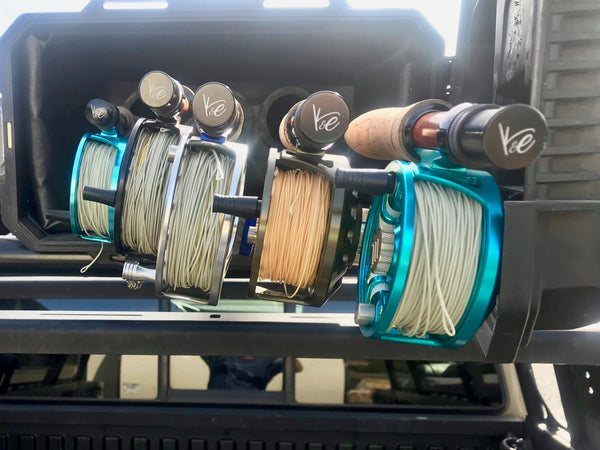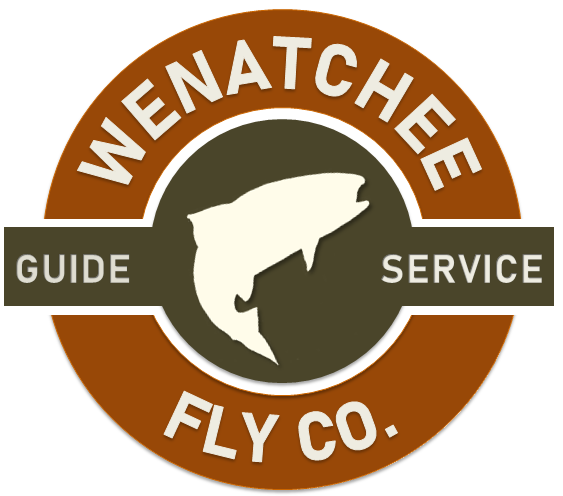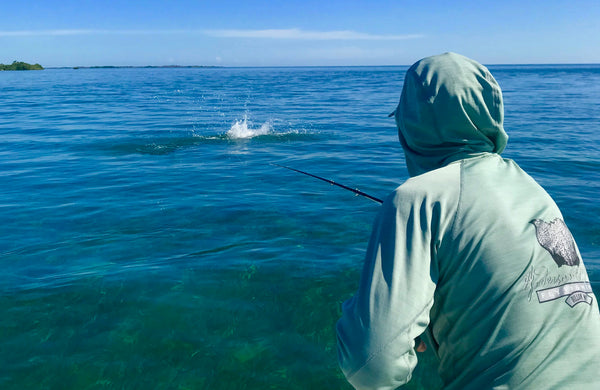6 Simple ways that you can keep your fishing water clean

The team at K&E Outfitters loves to be out on the water. It really doesn't even matter what kind of water. We love everything from wading small mountain streams to drifting big water rivers; from frog water ponds fishing for ditch pickles (small bass) to running big boats in open salt water. We simply love it all. Each new location and water type has it's own unique charm and challenge. In our travels we have also found that, in general, fly fishers all feel the same way and nearly universally have a desire to protect and preserve their favorite waterways so that the experience and enjoyment will remain available into the future.
Lately, some of you may have noticed that there has been a significant surge in interest in keeping our water clean. Numerous promotional campaigns, environmental efforts, and even a few serious businesses have popped up in the last few years with a total focus on trash removal.....especially plastic. Now, we probably don't have to tell you how important it is to keep the water free of non-natural materials and how fish and wildlife simply do better if they are not endangered by human trash. However, we did want to encourage you to not only be conscious of keeping your own footprints clean, but to be ready to pick up after others who are, well, less thoughtful.
Here are a 6 simple tips on how you can make a significant impact on the health of your local waterway:
1. Pick up the obvious trash...but then what?
Duh. That should be a no brainer for most of us fly anglers. We see a piece of unsightly trash on the river bank and most of us will go over and pick it up....or will we? Sometimes it is a little difficult to pick up a slimy, half decayed piece of whatever and stuff it into our neatly organized fly fishing pack. It's messy and probably a little smelly. At K&E Outfitters we recognized this problem and so started adding a small trash bag or old shopping bag to our gear bags and boxes before we head out. It's now just "standard" gear when prepping for a day on the water. We hate plastic though and that is why a good canvas bag or even a old sleeping bag stuff bag might be a better option than a plastic bag. We bet you are more likely to collect trash if you have a container to put it in.
2. Don't overlook the small stuff
It is easy to spot the beer can wedged under a rock or the remnants of a cheap plastic floaty tangled in the bank brush. It's a big ticket item in the world of the trash gathering angler, and by all means go get it! But we would encourage you not to step over the the "micro-trash" that you see also. While the big stuff is certainly a visual victory, making the whole scene more pleasing to the eye, it is the small stuff that can be so hard on the fish and wildlife. Plastic in particular is a bad player. Plastic is often fragmented to small pieces, colorful, irregular in shape, and rigid. This makes for a tantalizing but potentially deadly little snack for fish, birds, water mammals, and reptiles. We would argue that picking a 1/4 inch piece of red plastic fragment may be more important than the large ticket item.
3. If fishing is not attached to your reel, it belongs in your bag
Most of us in fly fishing have learned not to carelessly let our tippet and leader ends and fragments end up in the water. It takes an extra second but every piece goes into the bag, boat, or box...not the water. Make it a habit and always pick up line that you find on the banks of your local water.
4. Plastic sucks
We are not mixing words on this one and we are not the only ones. The world is slowly waking up to the fact that plastic is simply not a good thing for our environment. There are massive plastic clean up efforts popping up everywhere and governments and even companies are beginning to think about alternatives to plastic. Plastic clean up and limiting use is a monumental undertaking and for some it may seem daunting. After all, what can one angler do in the face of such a big problem?
We would encourage you to start at home. First, simply look at your own plastic use. Now we are not suggesting that you start brushing your teeth with a stick just so you don't buy a plastic handle toothbrush. But we would ask that you never, ever, ever....buy single use plastic bottles. The shear number of one-time use plastic water bottles, juice bottles, and other liquid bottles that we see bobbing around in our waterways and littering our favorite banks is unbelievable. Worse yet, we see fly fishing guides with coolers full of these things. Why? There is no good reason when there are so many cool and frankly more functional reusable bottles and containers available these days. A sturdy stainless beverage bottle is yet another piece of "standard" equipment in our fly bag every single trip.
Plastic grocery bags run a close second to the plastic bottle as far as numbers seen by us out there. These things are treacherous for fish and birds and again, while it's easy to throw a lunch into one, it is equally easy for it blow away on the wind instantly becoming out-of-reach and now a part of the waterway. Find a nice canvas lunch sack or special, dedicated compartment in your gear bag. We won't let a grocery clerk give us a plastic bag...no temptation to use it if we don't have it.
5. Go one step further with the trash you collect
If you have been picking up trash and disposing of it. Thank you. If you have been taking it home and sorting it into recycling......you are a true angling star! If you have recycling in your area or even a curb side recycling service, then take an extra minute when you get home to sort through your collection of 'trash treasure' and recycle everything that you can. By doing this you help to ensure that your water clean up efforts don't just turn around and add to another problem.
6. Support water clean up...by giving some money
There are now a number of organizations that are working hard to tackle the water pollution and trash collection problem on a large scale, and this costs money. If you are looking for a way to donate money or financially support this effort, here a couple of organizations to consider.
4Ocean: Dedicated to cleaning up beaches and coastal waters on a global scale
National River Clean Up: Just like it sounds. They move some serous junk.
Living Lands and Water: Focused mainly on the Mississippi River drainage.
Trout Unlimited: Local Chapters dedicated to river conservation and cleanup.
OK...off the soap box. We hope that most of you that read this find it boring because you are already doing it. If so, thank you. If not, join up. If every angler did just a little every trip out, it might be hard for any of us to find something to actually pick up!
Also in News

Unlocking the Secrets of Fly Rod Weights: A Comprehensive Guide
Fly Fishing Tapered Leader Size Chart
| 2X | 10.0 lb |
| 3X | 8.2 lb |
| 4X | 6.4 lb |
| 5X | 5.0 lb |
| 6X | 3.4 lb |


